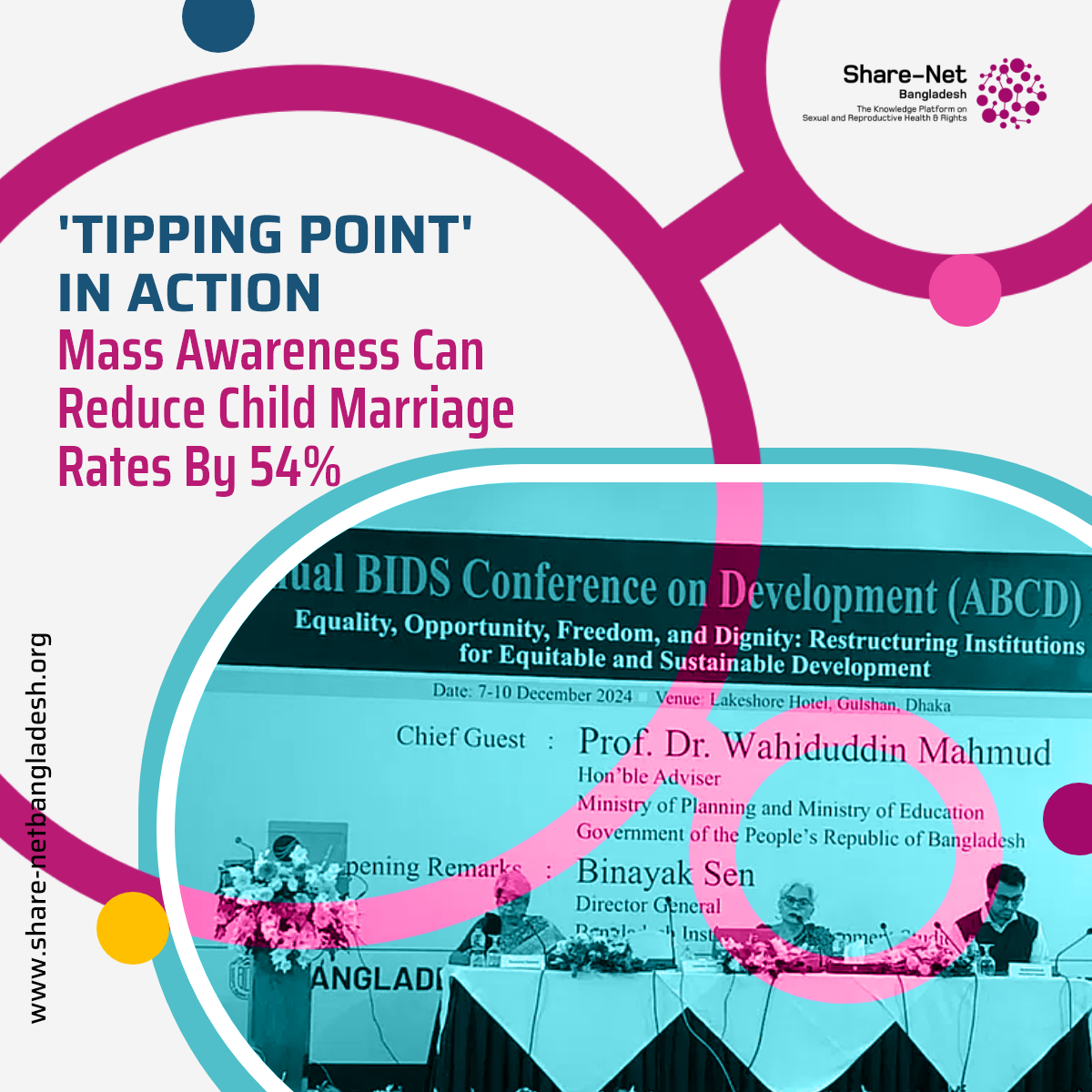‘Tipping Point’ in Action: Mass awareness can reduce child marriage rates by 54%
On the final day of the four-day Development Conference organised by the Bangladesh Institute of Development Studies (BIDS), groundbreaking research findings on child marriage prevention were presented. The event, held on Tuesday at a hotel in Gulshan, Dhaka, featured prominent researchers and development practitioners discussing innovative approaches to combat child marriage in Bangladesh.
Dr. Ruchira Tabassum Naved, Emeritus Scientist at icddr,b’s Maternal and Child Health Division, presented a study titled “Effectiveness of Tipping Point: A Girls’ Empowerment and Social Norm Intervention in Reducing Child Marriage.” The research highlighted that sustained awareness initiatives could reduce child marriage rates by as much as 54%. The Tipping Point program, developed by the international organisation CARE, focuses on empowering adolescent girls and addressing social norms that perpetuate child marriage. Dr. Naved explained how the program engaged adolescents, parents, community leaders, and government officials in Rangpur’s Pirgachha Upazila to foster awareness and reduce marriage risks among girls aged 12 to 16.
The study revealed that among girls participating in 36–40 awareness and training sessions, the risk of child marriage dropped significantly. The initiative also emphasised leadership training for girls, parent-adolescent dialogues, and capacity-building for local influencers, including religious leaders and union council members. Dr. Naved stressed that while the program showed promising results, challenges like the COVID-19 pandemic hindered its full implementation, underscoring the need for sustained efforts and long-term impact assessments.
Other sessions at the conference also delved into strategies for preventing child marriage. Muhammad Nazmul Islam, Head Researcher at Sajida Foundation, presented findings on using entertainment-education television programs to raise awareness. However, he noted that high production costs, low viewership, and limited public interest posed challenges to their success. Professor M Niaz Asadullah from Monash University Malaysia explored the role of legal reforms in altering societal behaviour regarding child marriage, while Momoe Makino, a Senior Research Fellow at the Institute of Developing Economies, discussed the unpaid labour contributions of women in households.
The session, moderated by Sajeda Amin, Senior Research Advisor at Sajida Foundation, highlighted the importance of community-based interventions in tackling child marriage. Experts emphasised that initiatives like Tipping Point are crucial for creating sustainable social change. The conference concluded with a call for greater investment in programs that empower girls, shift societal norms, and ensure legal protections against child marriage.
Source: Prothom Alo

